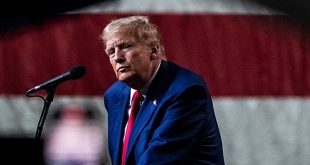
By Prof George Joffe
Many believed that Colonel Gaddafi’s regime in Libya would withstand the gale of change sweeping the Arab world because of its reputation for brutality which had fragmented the six million-strong population over the past 42 years.
Its likely disappearance now is all the more surprising because it has systematically destroyed even the slightest pretence of dissidence and has atomised Libyan society to ensure that no organisation could ever consolidate sufficiently to oppose it.
Political currents have been exiled ever since 1973, when ‘direct popular democracy’ was declared and the Jamahiriya came into existence. Even the Libyan army was treated with suspicion, with its officer corps controlled and monitored for potential disloyalty. No wonder that major units now seem to have broken away from the regime and made the liberation of eastern Libya possible.
The only structures that the regime tolerated, outside the formal structure of the Jamahiriya – the “state of the masses”, Gaddafi’s idiosyncratic vision of direct popular democracy in Libya’s stateless state in which all Libyans were theoretically obliged to participate – came from Libya’s tribal base and the Revolutionary Committee Movement, itself tied to the regime by tribal affiliation and ideological commitment and used to discipline and terrify the population through “revolutionary justice”.
Apart from that, there was only the colonel’s family and the rijal al-khaima, the “men of the tent” – the colonel’s old revolutionary comrades from the Union of Free Officers which had organised the 1969 revolution against the Sanussi monarchy which had brought the colonel to power.
Yet even the tribes had their own grievances: one – the Warfalla – had been implicated in the unsuccessful 1993 coup and its leaders had refused to execute those guilty as a demonstration of their loyalty to the regime. Gaddafi’s henchmen organised the executions instead, earning tribal enmity and probably explaining why tribal leaders so quickly declared for the opposition when the regime began to collapse.
Then there is also a geographic imperative for the rapidity of the collapse of the regime. Libya is essentially a desert, with the only areas that can support dense residence located in the Jefara Plain, around Tripoli, and the Jabal al-Akhdar behind Benghazi in Cyrenaica.
The result has been that Libya’s population, as a result of oil-fired economic development in the state that emerged at the end of the 1960s, is now highly urbanised and largely concentrated in these two cities and the satellite towns around them. This means that any regime which loses control of them has lost control of the country, even if it controls all outlying areas, such as the oil fields in the Gulf of Sirte between them.
Nor should the nature of the regime or the Gaddafi family be ignored as a factor for the collapse. The regime has, in recent years, benefited from the growing foreign investment in Libya, alongside its massive oil revenues, after sanctions in connection with the Lockerbie affairs were removed in 1999.
As foreign economic interest grew, so did corruption and, although Gaddafi himself may not have been corrupt, his seven sons and one daughter certainly were, drawing their fortunes from commissions and income streams siphoned off from the oil-and-gas sector.
Libyans themselves have been excluded from the benefits of oil wealth for decades, so the blatant corruption inflamed their resentment in recent years.
In addition, the Libyan leader has played on the aspirations of his sons to succeed him, pitting one against the other to ensure that none of them could amass sufficient power to threaten his position. In such an atmosphere of eternal mistrust and suspicion, it is hardly surprising that the country was brought to the brink of revolution.
****
Professor George Joffe is Professorial Fellow and Director, RUSI Qatar. He lectures in the Department of Politics and International Studies at the University of Cambridge.
 The Independent Uganda: You get the Truth we Pay the Price
The Independent Uganda: You get the Truth we Pay the Price


